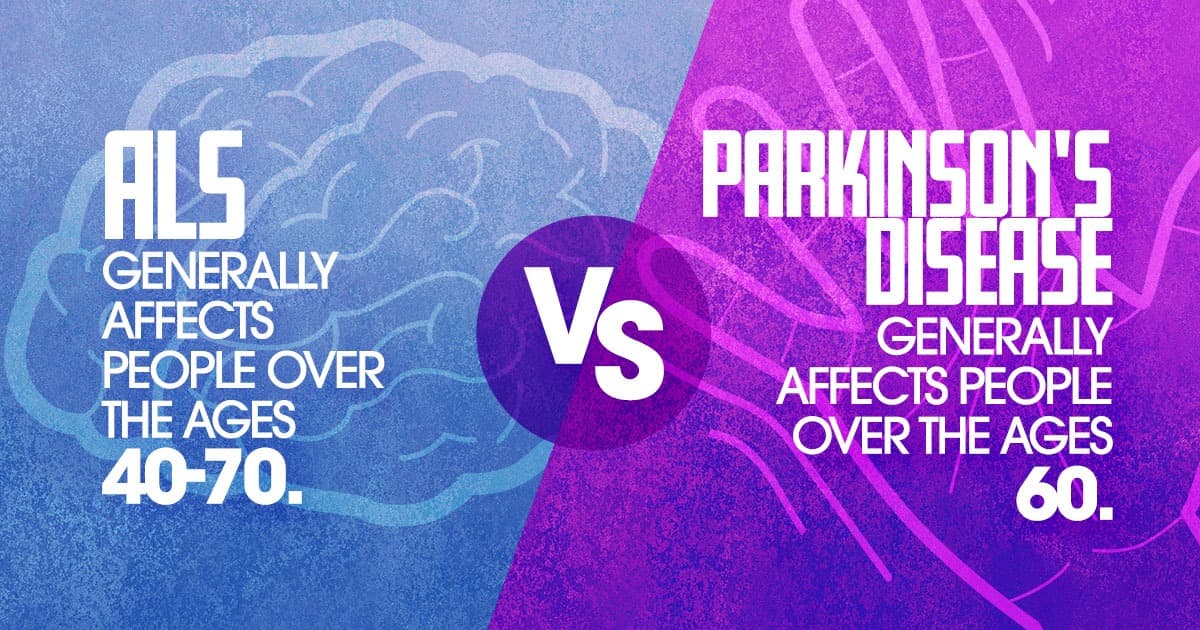ALS, or Amyotrophic Lateral Sclerosis, is commonly referred to as Lou Gerig’s disease. Many individuals with ALS will experience symptoms similar to Parkinson’s disease like tremors, slow movement, and rigidity. While symptoms for these neurodegenerative diseases can be difficult to differentiate at first glance, how the symptoms present and progress are different.
ALS attacks motor neurons, which control movement. Someone diagnosed with the disease will struggle with muscle control throughout their body. Overtime, widespread paralysis can occur. Unfortunately, ALS is fatal because the limited ability to breath and swallow will eventually lead to respiratory failure.
Initial signs of ALS include difficulty walking, increased clumsiness, weakness in the hands and feet, and poor posture. All of these symptoms are related to the body’s inability to control its muscles because the motor neurons are being attacked. Typically, ALS affects individuals between the ages of 40 and 70.

Different from ALS, Parkinson’s disease is typically diagnosed in individuals over the age of 60. Unlike the motor neurons that ALS attacks, Parkinson’s disease affects neurons confined to the brain. What typically begins with a slight tremor in a person’s hands gradually gets worse overtime. Eventually, Parkinson’s disease leads to muscle stiffness, trouble speaking, and a diminished ability to perform unconscious movements. Parkinson’s disease is not fatal, though as the symptoms progress, it can lead to severe disability.
There is no known cure for either ALS or Parkinson’s disease. Treatment options, including clinical research studies, may lessen symptoms or slow down the progression of the diseases. If you or a loved one have a diagnosis of either disease, participating in a clinical research study may help treat, detect and prevent ALS or Parkinson’s disease in the future.
Clinical research studies for both conditions and other neurodegenerative diseases help the medical community learn about treatments and hopefully find a cure. To learn more about the upcoming studies at Woodland Research Northwest for ALS, call 479-927-3000 or click here.




